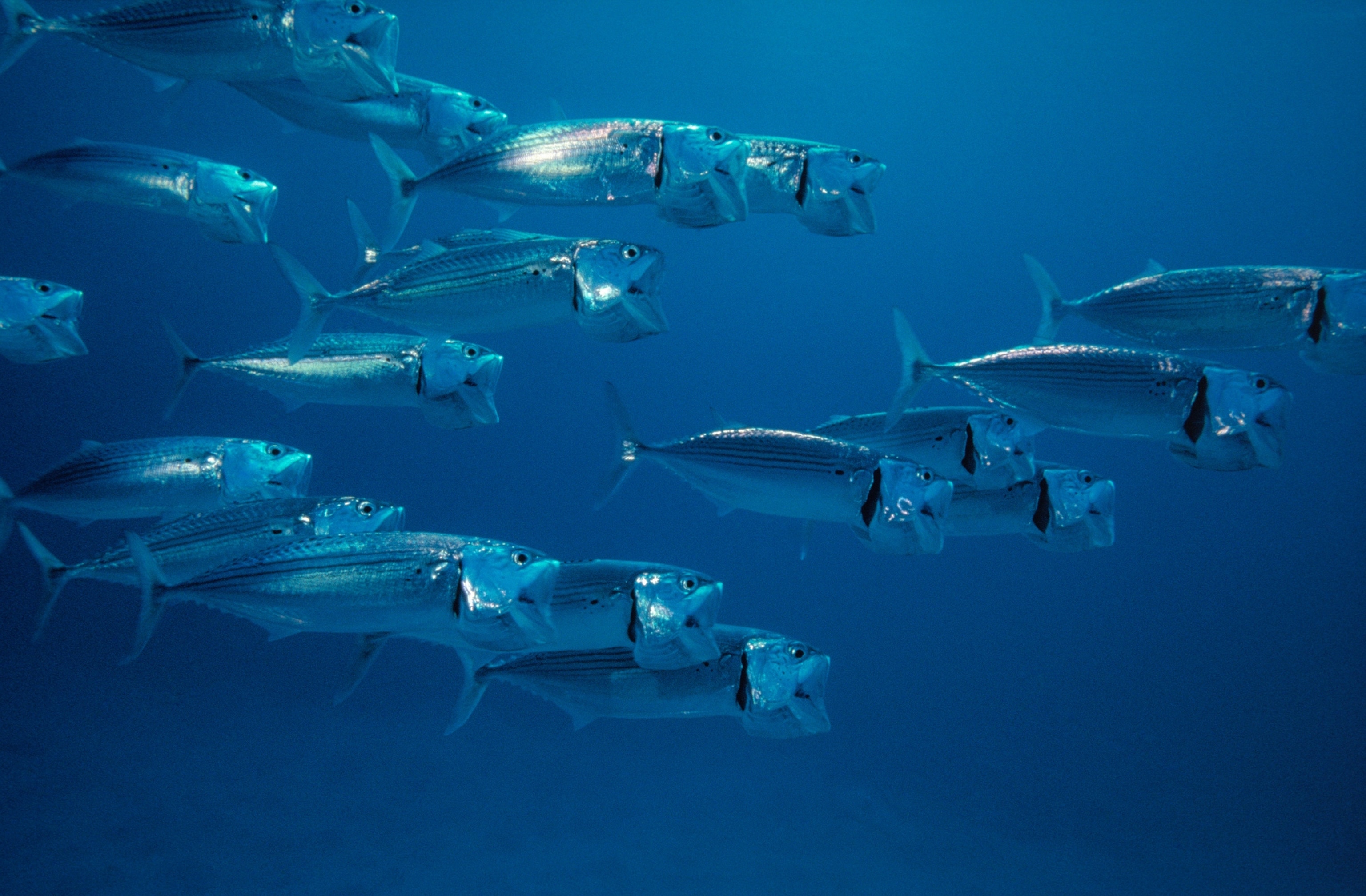
Value of the High Seas for Life on Earth Highlighted in New Report
A comprehensive look at international waters nets some surprising results.
The economic and ecological role of the high seas should no longer be ignored, argues a new report.
The high seas perform the equivalent of billions of dollars of work in removing carbon from our atmosphere and are critical to commercially valuable fisheries, according to the study, which was commissioned by the Global Ocean Commission after the most recent International Panel on Climate Change report identified the high seas—anything past the 200-mile (322-kilometer) mark of a coastal nation's territorial waters—as an area urgently in need of further study.
The report also suggests that shutting down fishing on the high seas would help overfished stocks around the world—including tuna, sharks, and squid—to recover.
About ten percent of the global fisheries catch is taken from the high seas annually, says Alex Rogers, one of the report's co-authors and a marine biologist with Somerville College and the University of Oxford in the U.K. Closing off the high seas would give commercially valuable species a place to recover from intense fishing pressure, while keeping the majority of the world's catch available to fleets.
A Not-So-Free Service
Not only do the high seas support a multibillion-dollar global fishing industry, they also function as a kind of climate change buffer for the entire planet.
Rogers and colleagues found that the high seas store about 550 million tons (500 million tonnes) of carbon a year. "That is a lot," Rogers says, but he emphasized that "this is the contribution of the living components of the ocean." Plants and animals from surface waters to the deep-sea take up carbon and remove it from the atmosphere, helping to mitigate the effects of climate change.
Physical processes, like the dissolution of carbon dioxide into seawater, help the high seas squirrel away even more carbon from the atmosphere, Rogers adds. (See also "Ocean Losing Its Appetite for Carbon.")
When the study authors calculated the value of the carbon-sequestering activity provided by the high seas, they found the service to be worth from $74 billion to $222 billion annually.
Piece by Piece
The high seas won't be able to continue supporting fisheries or removing carbon if we keep abusing them, the study authors note. Overfishing depletes the high seas, while bottom trawling—where nets are dragged along the seafloor—destroy delicate ecosystems such as deep-sea coral reefs and seamounts, says Rogers.
"We [also] see widespread contamination by toxins," he adds. Chemicals, whether they're used for household products or produced as waste through industrial manufacturing, eventually make their way into the oceans. The result is high mercury levels in top predators like tuna and sharks. Killer whales contain such large concentrations of flame-retardants that it's tempting to label the animals fireproof.
The problem is, "right now, we have a total inability to deal comprehensively with any activities in [the high seas]," says Lance Morgan, a marine ecologist in Glen Ellen, California, and president of the Marine Conservation Institute. "Everything is managed one activity, one sector at a time." (See "Can World Leaders Tame the Wild West of the High Seas?")
"Any kind of effort to protect a vulnerable habitat might have to go to many different international entities—commercial shipping, regional fishery management, or the seabed authority," he says.
A good first step would be to implement some kind of agreement through the United Nations that sets up a structure to deal with issues on the high seas, says Morgan, who was not involved in the report.
It Can Be Done
The good news is that some of these problems, such as overfishing, can be addressed right now, Rogers says. The technology to track and monitor fishing vessels exists, but it's not on every ship. It would be quite feasible to put surveillance equipment on these vessels to "ensure they're doing what they're supposed to be doing," he says.
Satellite technology has also gotten to the point where it's now possible to monitor areas of the ocean in great detail, Rogers adds.
One simple fix would be to require all fishing vessels to carry an International Maritime Organization (IMO) number—a kind of registry tag. "All large vessels have to carry an official IMO number," Rogers explains. "For some reason, fishing vessels are exempt" from carrying it. By requiring them to have an IMO number, the ability to detect wrongdoing among the world's fishing fleets would be improved, he says.
Managing the high seas will have to be a collective effort. "We need to stop viewing the high seas as ... a common straw that we can all suck from," Morgan says. "We need to really think about this with a more comprehensive strategy."
With reporting contributions by Brian Clark Howard.
Follow Jane J. Lee on Twitter.